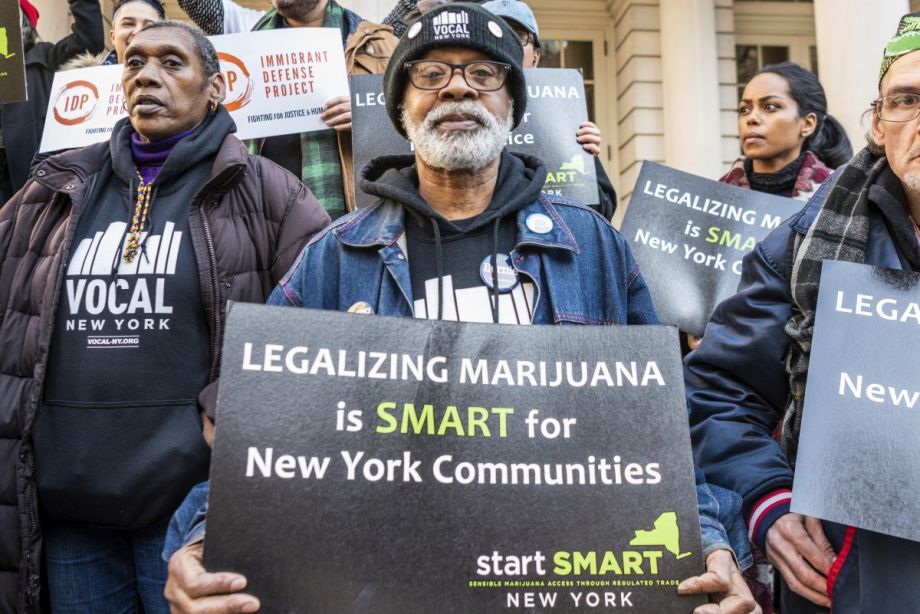New York Legalizes Marijuana, Will Expunge Records
New York Gov. Andrew Cuomo has signed into law a bill legalizing marijuana in the Empire State. The law takes effect immediately, though it will be a while before legal dispensaries and “consumption sites” will begin operating.
People convicted of marijuana-related offenses that are no longer crimes under the new legislation will have their records automatically expunged, the New York Times reported, but did not give details on the timeline for when or how that will take place. (Code for America has helped California counties clear 140,000 marijuana convictions since the drug became legal in that state, as Next City has previously reported.)
The marijuana legalization bill also comes with a provision that 40% of tax revenue from licensed pot sales will be directed towards Black and Latino communities which have disproportionately borne the brunt of the “war on drugs.”
“Unlike any other state in America, this legislation is intentional about equity,” Crystal D. Peoples-Stokes, the Assembly’s Democratic majority leader and sponsor of the bill, said, according to the Times. “Equity is not a second thought, it’s the first one, and it needs to be, because the people who paid the price for this war on drugs have lost so much.”
New Mexico legislators also voted to legalize marijuana in the state; the governor is expected to sign, the New York Times reported in a separate story.
California Legislators Considering Statewide UBI Program for Foster Youth
In September 2020, Santa Clara County launched a basic-income pilot giving foster youth who aged out of the system $1000 a month. Now, Dave Cortese, the county supervisor who launched the pilot, is a California state senator, and he has introduced a state bill to expand the program statewide, the Huffington Post reports.
Once foster youth age out of the system, Cortese told Huffington Post, they are left with little emotional or financial support. They can’t pick up the phone and ask: “‘Hey Mom, I’m having trouble making it, can you help me pay my rent for a month?’ They just genuinely don’t have that.”
It will be a while before county officials have detailed data on the success of the pilot, but anecdotal evidence suggests that it’s helped many youth get into stable housing. For some youth, it’s their only source of income.
Santa Clara County is currently looking for funding to extend the pilot, HuffPost said.
Women-Owned Businesses (Slowly) on the Rise
The number of businesses owned by women in the U.S. increased by 0.6% from 2017 to 2018, according to new data from the Census Bureau.
That represents 6,861 more firms.
Growth was especially rapid in arts, entertainment and recreation, where the number of women-owned firms rose 10.5%, and in real estate, where the number of women-owned businesses increased 7.5%. Also notably, women-owned businesses grew in manufacturing, wholesale trade and finance, while the total number of firms overall in those sectors fell.
California is the state with the most women-owned businesses (it also has the most businesses overall, and the highest population of any state). Hawaii and Virginia, however, have the highest percentage of women-owned businesses.
Overall, the Census Bureau said, the demographics of women-owned businesses are similar to those owned by men: most women-owned businesses are run by white women.
This article is part of The Bottom Line, a series exploring scalable solutions for problems related to affordability, inclusive economic growth and access to capital. Click here to subscribe to our Bottom Line newsletter.


















